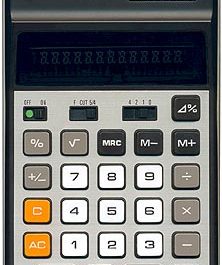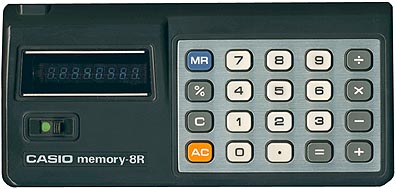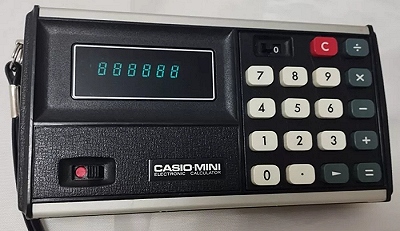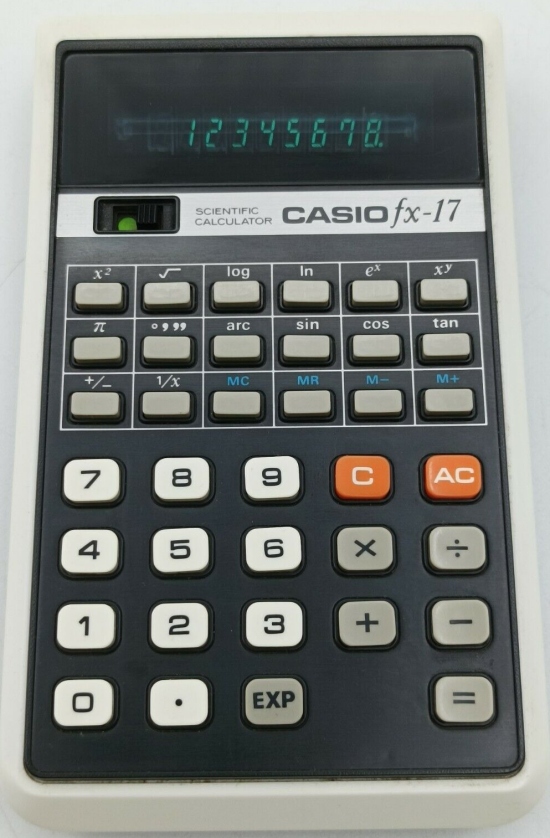
The Casio FX-17 was an early scientific calculator released in 1976. This chunky model measured about 90mm x 150mm x 30mm and weighed 176g without batteries. It used a 6V DC power supply from 4 AA batteries or an optional AC adapter.
The FX-17 had a tilted blue vacuum fluorescent display with 8 main digits plus a 9th digit on the left for negative numbers. Below the display was a flush metallic keyboard panel in brown and blue. The keys had a soft click feedback.

The plastic case consisted of glossy white and matte gray sections. There was a removable black plastic cover. Overall, the FX-17 had a very retro 70s aesthetic.
For features, the FX-17 offered basic four function arithmetic along with squares, square roots, trigonometric functions, logs, and powers. It had a single 4-function memory and both standard and scientific display modes. Users could input numbers in sexagesimal format but output was decimal only.
Internally, the FX-17 used a Hitachi HD37678B processor from April 1976. The main board sat on the keyboard assembly. Construction involved some tricky disassembly to avoid damage.
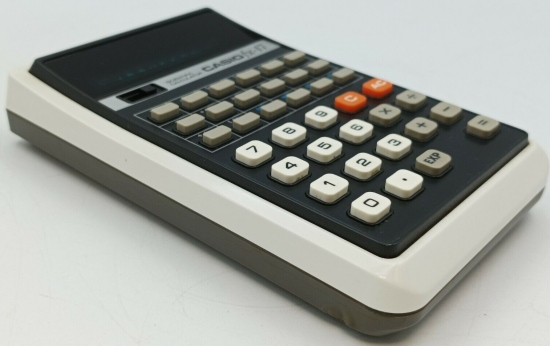
The FX-17 had slightly limited precision, especially for logs. Exponents were capped and powers were a bit sloppy. Overflow or errors just showed “E” with no recovery. But the logic was mostly bug-free for the time.
Some key logic details:
- “C” to clear last entry, “AC” for all clear
- Constant on multiply/divide via double operator press
- 9th digit suppresses overflow
- Negative numbers shown with “-” in 9th digit
- Overflow/errors show just “E”
- No indication when storing to memory
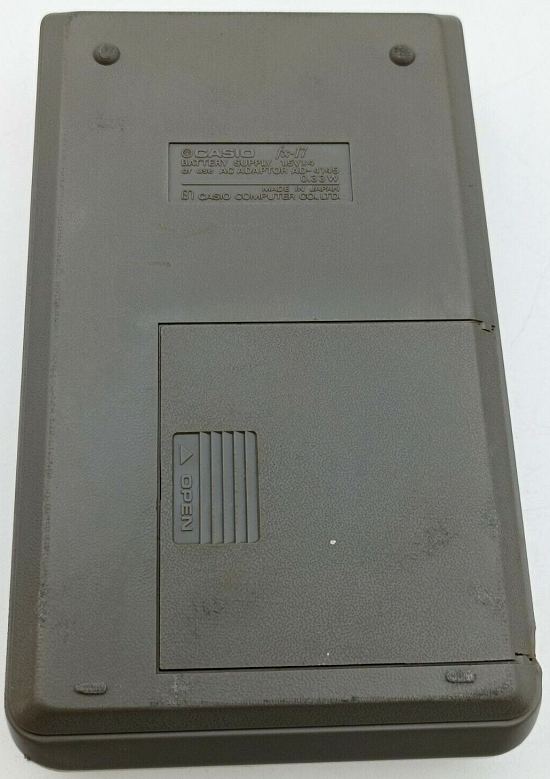
The Casio FX-17 was an early milestone in scientific calculators. It established the classic FX layout and brought advanced math functions to a portable handheld device. But it also showed some of the limitations of 70s era electronics. Still, the FX-17 pioneered features that would become standard in later models. Its expandable scientific powers in a hefty retro case marked an important step forward for Casio.
